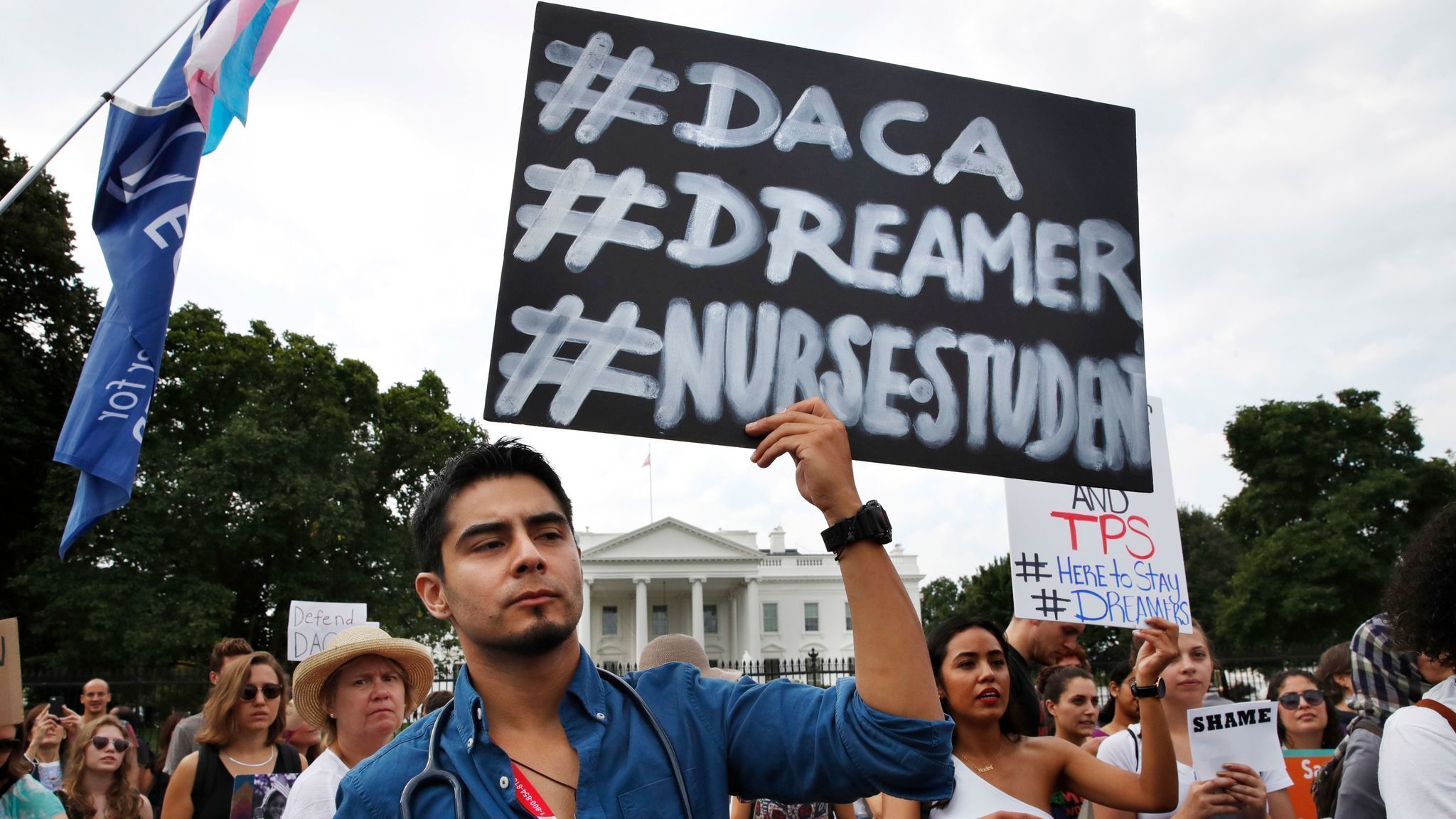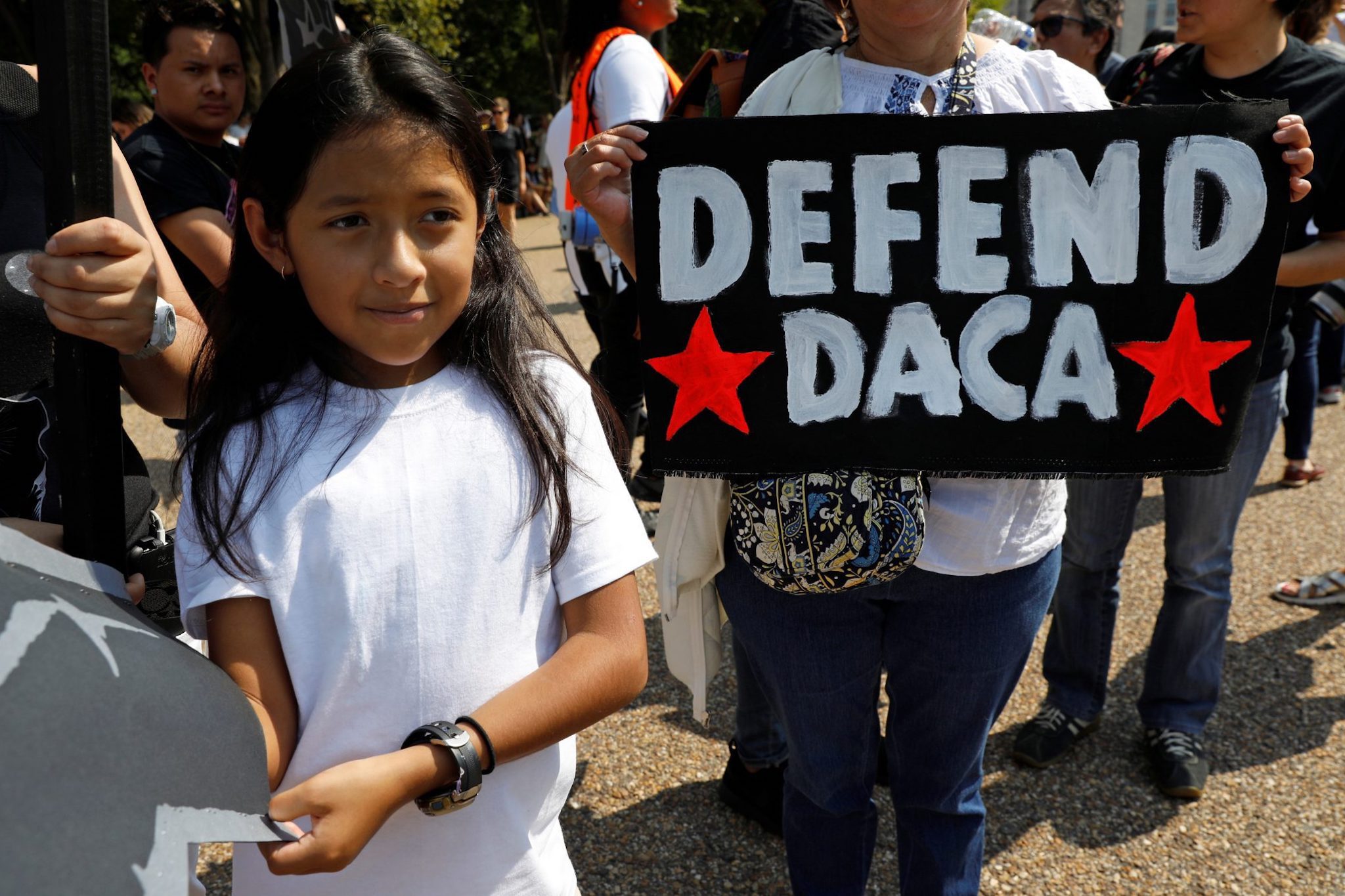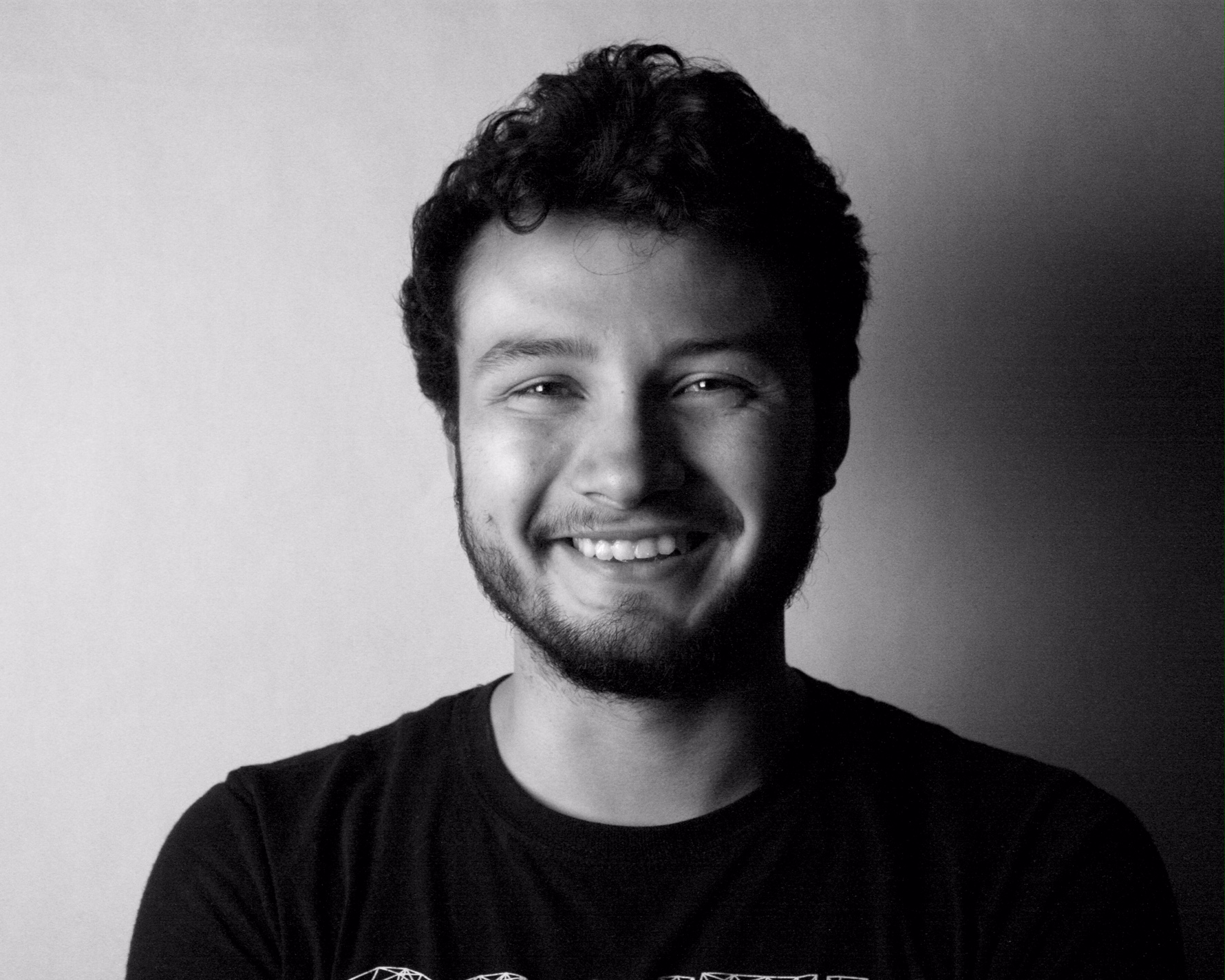I’m entering my final year of undergrad and I’m trying to plan for my future. I’m considering grad programs and craft school fellowships. I am networking and building connections for the future to have many avenues to choose from when I graduate next year. I look forward to developing my work as an artist and building the space to grow as a person. I can hardly contain my excitement when I consider all the possibility.
Then I am reminded that I’m not able to count on any of those things. Not because of the unpredictability of the future, but because my legality is in question. Deferred Action for Childhood Arrivals (DACA), the Obama-era policy that allows undocumented immigrants like myself a semblance of citizenship, is at stake.
Without it, I cannot work legally or get a driver’s license, and it will be exceptionally more difficult to plan for grad school and the like. Because my lack of citizenship precludes me from getting a passport, I also lack the ability to travel.
I am one of 689,800 DACA recipients in similar situations. The DACA program has been a kernel of hope that allows undocumented immigrants to pursue their aspirations, which is why we’ve been referred to as Dreamers. But DACA has been subject to a constant political back and forth over the last year (not to mention from its very inception). It’s been rescinded, declared unconstitutional and then reinstated as a result of backlash.

Back in September 2017, to the Dreamers’ dismay, the Trump administration decided to end the program, negating new applications and renewals. They immediately faced lawsuits from states, schools and even DACA recipients themselves. The decision to end DACA was halted by the injunction of two judges — one from California, the other from New York.
This led to a judicial impasse in which DACA’s fate was to be decided March 5. While we Dreamers held our breath, the deadline came and went with no decision. This has since happened multiple times over.
It seems there is always a new deadline, that the fate of Dreamers everywhere is constantly hanging in the balance. It’s exhausting to follow. For now, U.S. Citizenship and Immigrant Services (USCIS) is not accepting new applications for DACA, but only renewals from those who have already been granted the status before. That’s expected to change in the very near future.
Currently, Dreamers are awaiting the decision by Judge Andrew Hanen, who’s known for having a hard anti-immigrant stance, to give another injunction that orders DACA to be halted immediately. Hanen held a hearing on Aug. 8 to discuss DACA’s constitutionality.
He did not make a decision on that basis, but instead is looking to question it under the Administrative Procedure Act, which dictates the manner in which the government can create or change regulations. The decision is expected today, on Aug. 13, another precarious deadline.
Despite the Trump administration’s desire to end DACA, they also oppose such a strict injunction by Hanen. If Hanen rules anti-DACA, then the administration would be subject to multiple contradictory directives from four federal judges: Hanen, the two aforementioned justices and Judge John Bates, of the D.C. Circuit Court.
On Aug. 3, Bates ordered the nullification of the administration’s decision to end DACA. He is also calling for USCIS to start accepting new applications again. His argument, and that of other pro-immigrant judges, is that the administration has not given a good argument as to why DACA is unlawful or unconstitutional. Bates has given them 20 days, until Aug. 23, to appeal the decision, or else it immediately goes into effect. (One more deadline on which the Dreamers’ future rests.)
If Hanen places his contradictory injunction, then the ensuing stalemate would have to be sorted out by the Supreme Court, which is still missing a member, effectively splitting them four-four on an ideological line. It’s uncertain as to how the Court might proceed, but Vox does a great job of summarizing the possibilities:
“It might issue the stay and allow DACA to remain in effect per other judges’ orders until the case has fully come before SCOTUS. It might declare that Hanen’s ruling is in place for DACA recipients who live in the Fifth Circuit, but not in the rest of the country… Or, in theory, it might declare that Hanen’s ruling somehow supersedes the other three.”
All of this is incredibly confusing to follow, not to mention emotionally draining. It is impossible to tell how DACA will proceed, and hence there is a lot of contradictory opinions on how Dreamers should proceed, specifically on whether or not we should be applying for renewal.
Given that the program may very well be canceled, there is a lot of incentive to apply immediately. However, each application costs $495, and there is no guarantee of acceptance. Renewal is also largely contingent upon when one’s current status expires.
Many advisors have encouraged applying if your DACA expires by August of next year. My own status lasts until late September 2019, and I am scared to apply only to have it be denied because it is too early. However, I am equally terrified of DACA being rescinded, being left with no legal status afterward and subject to deportation.
I know this fear is shared by all other Dreamers as well. Trying to follow every new occurrence on the topic is disheartening. Every day, our future is liable to change. We are constantly worried, torn between hope and dismay. We can’t plan our futures because they can be ripped away at any time, at somebody else’s discretion.
Frankly, I’m tired of it. But I don’t have the option to opt out. I just want to focus on school and building my future. But that’s constantly in peril. Our future and our very existence seem boiled down to a constant political back and forth. But it’s much more than that.
We Dreamers were brought to the U.S. to pursue a life that we wouldn’t be able to otherwise. We have aspirations that transcend this constant political shuffle. And if I may speak for all those in the same situation, we have a right be considered as valuable members of our communities and America at large.

















